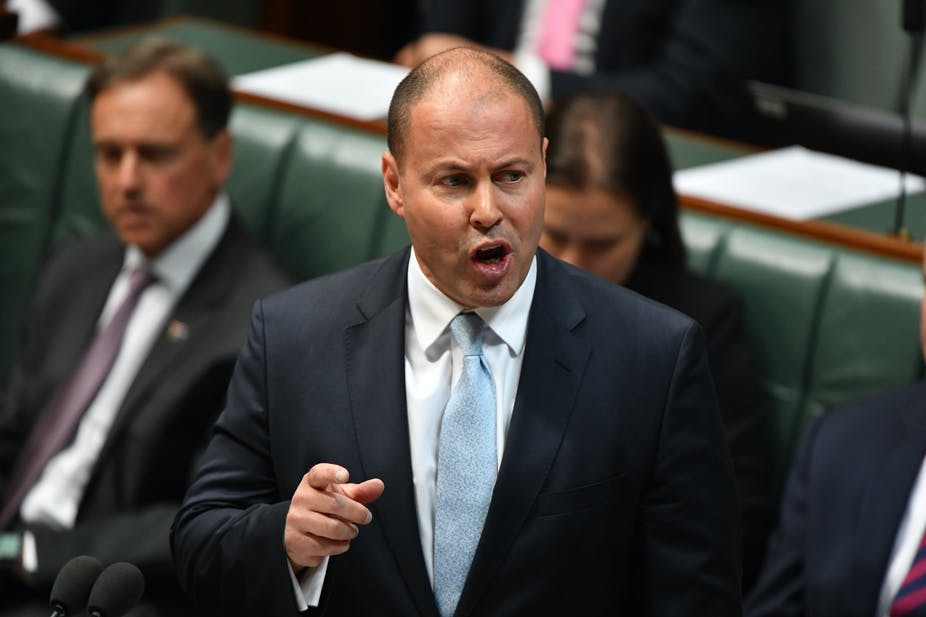Federal Treasurer, Josh Frydenberg, has delivered the budget speech on the floor of the House of Representatives tonight, revealing Australia is $213.7 billion in deficit.
Follow our live blog here.
Aged care:
The Budget will provide support to older Australians who wish to stay at home for longer by providing $1.6 billion for an additional 23,000 home care packages across all package levels.
The number of home care packages will have increased three-fold from around 60,300 in 2013 to around 185,500 in 2021.
A further $11.3 million will be provided for training and support for aged care providers and carers of people experiencing behavioural and psychological symptoms of dementia.
Pensioners:
The Budget includes two additional $250 payments, the first to be provided from December 2020 and the second from early 2021.
Health:
The Government will spend $93.8 billion on health in 2020-21.
This Budget also includes $376 million for new and amended listings on the PBS, including lifesaving medicines to treat leukaemia, melanoma and Parkinson’s disease.
The Government is also contributing $50 million to the establishment of the Victorian Melanoma and Clinical Trials Centre at the Alfred Hospital, helping researchers to better understand melanoma.
Disability:
The Government is providing a further $3.9 billion to the NDIS.
Education:
An additional $146 million will be provided to improve the educational outcomes of school leavers and disadvantaged students.
$18 billion in funding is also guaranteed for all higher education institutions in 2020 in response to the COVID-19 pandemic. This guarantee is extended until 2023.
Veterans:
$94.3 million to improve mental health outcomes and ensure high-quality care for older veterans and their families.
Eligible veteran income support recipients and concession card holders will also receive two additional $250 Economic Support Payments from December 2020 and from early 2021.

Supporting communities:
The Government is providing $220 million to support the delivery of critical front line services for families.
This includes $133 million towards family and child support programs and $87.3 million towards Family Law and Family Relationship Services.
Family and Federal Circuit Courts with be provided an additional $10.2 million to manage the impacts of COVID-19.
JobMaker Hiring Credit:
The $4 billion JobMaker Hiring Credit will be payable for up to 12 months for each new job and is available from tomorrow to employers who hire eligible employees aged 16-35.
The Hiring Credit will be paid quarterly in arrears at the rate of $200 per week for those aged between 16-29, and $100 per week for those aged between 30-35. Eligible employees are required to work a minimum of 20 hours per week.
To be eligible, employers will need to demonstrate an increase in overall employee headcount and payroll for each additional new position created.
Treasury estimates that this will support around 450,000 jobs for young people.
Skills and training:
The JobMaker Plan includes the establishment of the $1 billion JobTrainer Fund to create up to 340,000 free or low cost training places for school leavers and job seekers.
The Federal Government is committing an additional $1.2 billion to create 100,000 new apprenticeships and traineeships, with a 50 per cent wage subsidy for businesses who employ them.
To help more Australians get a job, funding will also be provided for 50,000 new higher education short courses and 12,000 new Commonwealth supported places for higher education in 2021.
Tax relief:
An additional $17.8 billion in personal income tax relief will be provided for more than 11 million hard-working Australians to support the economic recovery, including an additional $12.5 billion over the next 12 months.
Over 99 percent of businesses employing 11.5 million Australians will be allowed to deduct the full cost of eligible depreciable assets of any value in the year they are installed. Small, medium and larger businesses with a turnover of up to $5 billion will be eligible.
Companies with turnover up to $5 billion will also be allowed to offset losses against previous profits on which tax has been paid to generate a refund.
Building Australia’s capability:
1.5 billion will be invested in Australia’s Modern Manufacturing Strategy. There will also be:
- An additional $2 billion through the Research and Development Tax Incentive.
- $1 billion for new research funding for our universities.
- $1.9 billion in new funding to support low emissions and renewable technologies.
Infrastructure:
The Budget will fund major projects across each state:
- The Singleton Bypass and Bolivia Hill Upgrade in New South Wales.
- The upgrade of the Shepparton and Warrnambool Rail Lines in Victoria.
- The Coomera Connector in Queensland.
- The Wheatbelt Secondary Freight Network in Western Australia.
- The Main South Road Duplication in South Australia.
- The Tasman Bridge Upgrade in Tasmania.
- The Carpentaria Highway Upgrades in the Northern Territory.
- The Molonglo River Bridge in the Australian Capital Territory.
The Budget also includes a $2 billion investment in road safety upgrades to save lives.

